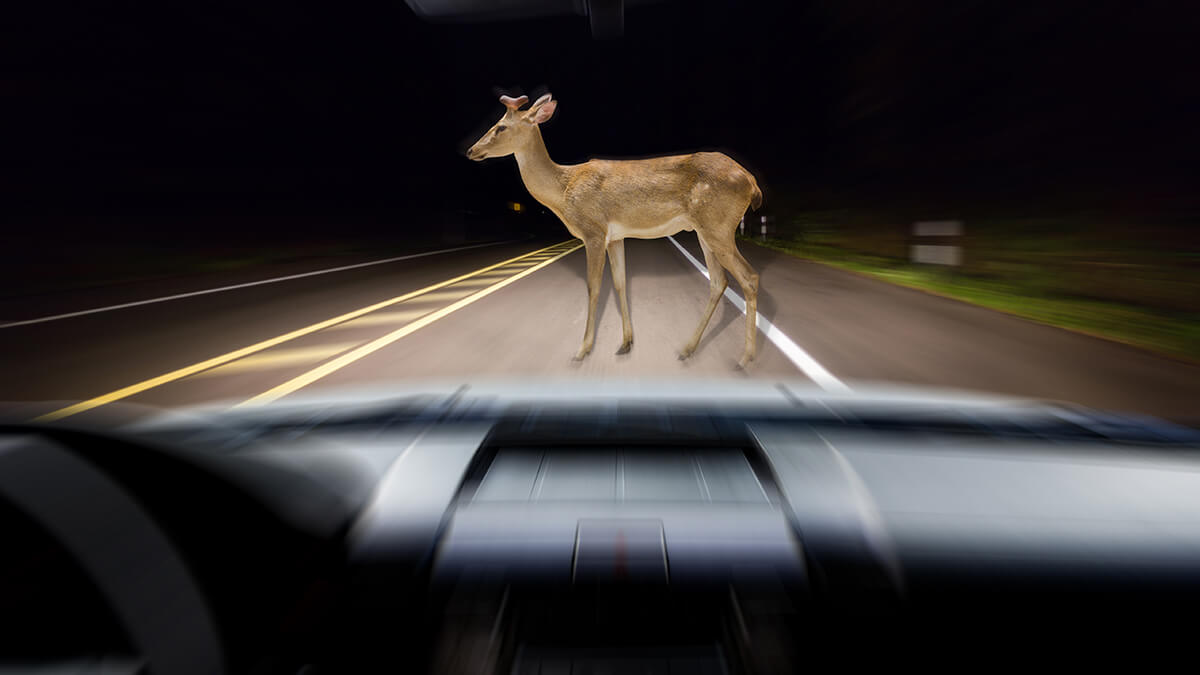
How to Avoid Hitting a Deer
You're driving on a winding road, spending time with family and friends, when a deer pops out in front of you. Do you brake? Do you try to swerve around it? How do you respond to such an unpredictable event?
Animals seem to have other things on their mind near the roads, and sometimes jump out at cars unexpectedly. To make things worse, when they see headlights approaching, they freeze! That is why the term “caught like a deer in headlights” was created. Avoiding deer and other animals requires a quick response. Unfortunately, it can be challenging to think about what to do, and then do it on the fly. Following these guidelines can help you avoid hitting a deer or other animal.
Fasten your seatbelt
While this will not help you avoid hitting an animal, it is the best way to help ensure safety for you and the passengers in your car. Buckle up during every auto trip! Make sure all your passengers are wearing their seatbelts as well.Pay attention to animal-crossing signs
There are yellow, diamond-shaped signs on the side of the road with animal pictures on them (deer, moose, bear) that let you know you're in an area where animals are known to cross the road.Honk your horn in short bursts (for deer)
The Insurance Information Institute (iii) suggests that when driving in environments with a high likelihood of deer crossings, drivers should periodically honk their horn in short spurts. This can help scare away any deer that may have been near the road. However, honking the horn too much may confuse the deer and lead them closer to the road, and it can also confuse other drivers, so it's recommended to hold a steady pace and don't overdo it.Be especially alert at dawn and dusk
Animals are most likely to be roaming at dawn and dusk, so stay especially alert during these times to avoid collision.
If a deer appears on the road…
According to the iii, you should avoid swerving to miss a deer, as this can lead to a more serious crash.
Don't do it. The instinctual action of swerving can cause more harm than good. You may swerve into the other lane with oncoming traffic, a tree, a fence or road sign. This can increase your chance of injury.Drive towards where the animal came from
When sensing danger, roaming wildlife are most likely to either stand still in fear, or run onward in the direction they are already going. If you feel you can safely maneuver your car, your best option to miss the animal is often to drive towards the direction where it came from.Brake firmly
Per iii, unless there is a car directly behind you, brake firmly and safely slow your vehicle. If there is a car close by, slow down, but make sure to honk your horn to signal to the other driver that there is a problem ahead.Drive at a safe speed.
Speed limits exist for a reason! Following the posted speed limit helps you maintain control regardless of twists, turns and unexpected visitors.
